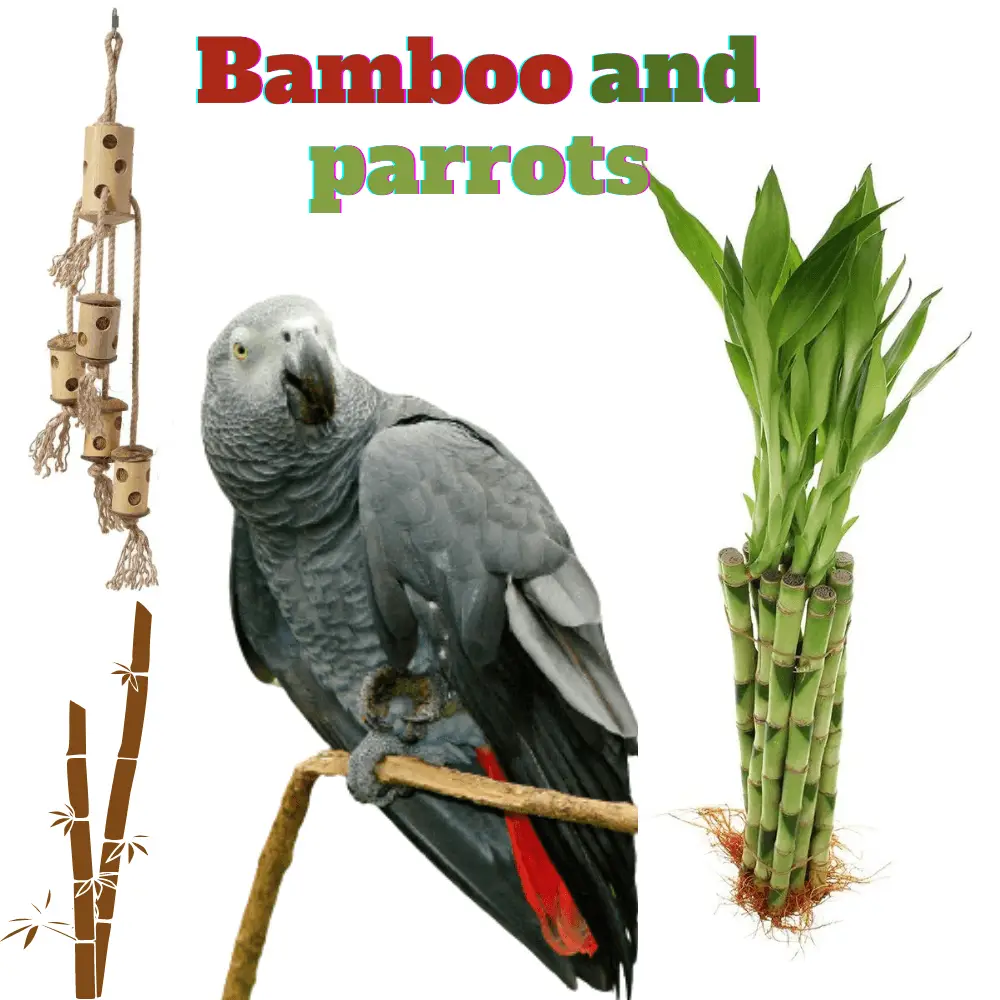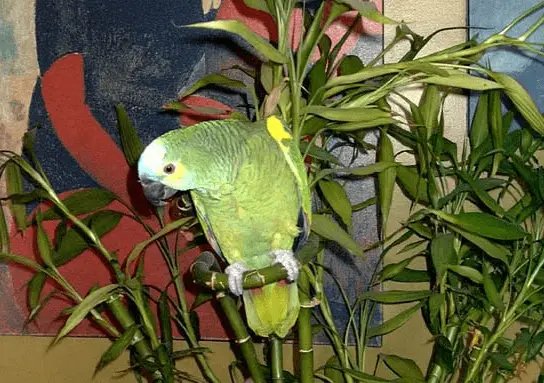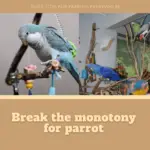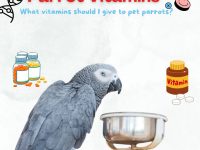
Bamboo and parrots: Bamboo is from the grass family. There are about 115 genera and 1300 species which, as a general rule, would not be toxic to our parrots. It would therefore be wrong to believe that there are only 2 species ( phyllostachys aurea and phyllostachys nigra ); the world of bamboo is gigantic. Unfortunately, nurserymen often only let us glimpse these two species.
Is bamboo safe for parrots
Rumor has it that bamboo is a tropical plant that fears the cold… Tut .. tut .. tut…! Cold hardiness depends on the variety. There are many that withstand temperatures of -15 ° C and some, such as ph. aureosulcata, ph. bissetii, ph. nuda and pseudosasa japonica tolerate colds of -24 ° C, which makes it a very resistant and pretty plant for your outdoor aviaries.
Beware of false bamboo such as Nandina domestica, also called celestial bamboo, which is part of another family and which is horribly toxic to parrots.
Imitation
 Bamboo and parrots
Bamboo and parrots
On the other hand, the dracaena sanderina, the famous lucky bamboo or “lucky bamboo”, is very fashionable these days, even if it is not really part of the bamboo family, it at least has the happiness of not being toxic to our parrots in addition to being very decorative. Does not stand up to the cold though.
Trees that are poisonous and non-toxic to parrots
To make pleasure toys or perches for our parrots, we sometimes hesitate over the species to choose. To avoid making any more mistakes and not putting our birds at risk, here is a summary list of the trees whose wood can be used without risk to their health.
We are only talking about trees here, but in another article, we will talk about toxic flowers and houseplants.
The non-toxic woods you can use are :
- Hawthorn
- Citrus (lemon tree, orange tree, kumquat, etc.)
- Almond
- Bamboo
- Bignone
- Bamboo
- Birch
- cholla
- Dogwood
- Maple (very well dried, never fresh)
- Eucalyptus
- Fig tree
- Ash
- Beech
- hibiscus
- Java
- Lilac
- Larch
- Magnolia
- Mangrove
- Hazelnut (in all its forms)
- Walnut
- Common Olive (Olea Europaea)
- Bohemian Olive (Elaeagnus Angustifolia)
- Elm
- Poplar
- Pine
- Planetree
- Crabapple
- Appletree
- Peartree
- Reed
- Rosebush (all varieties)
- Fir (although resin may be sticky on fresh wood)
- Willow
- mountain ash (sorbus aucuparia)
- Linden
- Aspen (poplar family)
- Vine (the one producing edible fruit)
- Yucca (except store-bought plants treated with pesticides).
Toxic woods that should absolutely not be used :
- Apricot tree
- Accacia
- wig tree
- Alder (irritations and respiratory disorders)
- Lawyer
- Boxwood
- Carob tree
- Cedar
- Cherry tree
- Chestnut
- Oak (asthma, sneezing, vomiting)
- Honeysuckle
- Cypress
- red maple
- Ficus
- Weeping Fig
- Charcoal
- Juniper
- Pomegranate (wood and bark)
- Hydrangea
- Holly
- Yew
- mountain laurel
- oleander
- common horse chestnut
- Mimosa
- Chinese mulberry
- nectarine tree
- To fish
- Philodendron
- plum tree
- Rhododendron
- mock orange
- Mexican elderberry
- black elderberry
- Privet
- Virginia creeper.
Never use any wood that is not clearly identified, and avoid those likely to have been exposed to hydrocarbons, pesticides, or other toxic substances.
Also, note that many exotic woods are toxic to psittacines. You will find the list HERE. Diseased or parasitized trees are also excluded. Wash all the antlers with water and white vinegar before offering them to your birds.




















